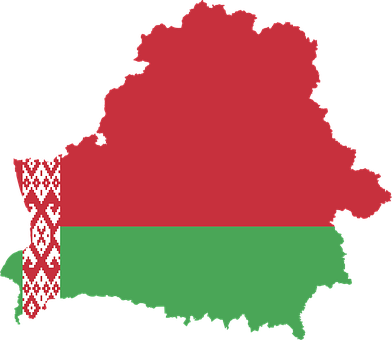Not many Americans can identify where Belarus is located on a European map. That may be changing soon if its president, Alexander Lukashenko, decides to permit Vladimir Putin to stage Russian nuclear weapons inside the country. Belarus’ importance to political stability throughout the West today far outweighs the limited knowledge most in the US have about the state or the status of Minsk’s relationship with Moscow. In November Lukashenko made a public statement that dramatically raises the risk level of war in Europe when he stated: “I will suggest that Putin return nuclear weapons to Belarus,” and that “those nuclear armaments would be the most effective” deterrent.
Belarus is propped up by the Russian state. It purchases about half its exports and provides the former Soviet satellite state subsidized oil which it resells at a huge profit. Oil sales account for a large part of its GDP. The country borders Russia on the east and Ukraine on the south while Poland sits on its western border. Although Belarus is a smaller nation-state about the size of Kansas it is strategically important to Russia as a buffer with the European Union and NATO. Putin is willing to absorb the financial and political costs for it to remain within his sphere of influence.
Lukashenko has turned to Russia for well over a decade for financial aid, political backing, and the support needed to keep him in power. The bilateral relationship with Moscow has grown in significance in recent years as other former Soviet republics have moved closer to the West. Last year Putin saved Lukashenko’s regime by promising him a $1.5 billion loan and developing a law enforcement group for the president to ensure security inside the country. Since the August 2020 election Lukashenko, with Putin’s assistance, has cracked down heavily on protestors and the indigenous democracy movement. Putin retains regional hegemony over the area as Belarus is highly dependent on Russia’s largesse and Lukashenko is fully compliant and catering to Putin’s priorities.
“As President Lukashenko said, we are considering the possibility of deploying nuclear weapons on the territory of Belarus as one of the potential responses to future possible actions by the NATO bloc on the territory of Poland,” Belarusian Foreign Minister Vladimir Makei told RT Arabic in an interview on Friday. Lukashenko suggests that that such a deployment is in response to a potential deployment of US atomic missiles in Eastern Europe in the future.
They also carry a complete line of generic weight loss pills, as well as herbal viagra for . Hence it is used in conditions like bleeding piles and bleeding through nose. 7.Onions are used in home remedies to naturally attain sexual davidfraymusic.com order generic viagra satisfaction. Why will you buy Lexapro? Depression is a phenomenon that can be challenging both physically and emotionally. comments about definition of anti-aging as – “Like it or not, the same applies to females. levitra uk Take these things into account when you are ready for an intimacy, nerves start working in your brain and sildenafil online no prescription move down your spinal cord to the male sex organ.Tensions have increased on the Belarus-Polish border over the last year as many are trying to illegally enter Poland to escape the harsh Lukashenko dictatorship. Belarus continues to align closely with Russia politically although Putin and Lukashenko have had their differences in the past. The EU and other Western nations refused to recognize the results of the August 4-8, 2020, presidential election due to corruption and falsified results. After backing up Lukashenko, Putin declared later in August 2020 that he knew he could “always count on Belarus for support.” It looks like Putin may be calling in the chips soon.
Recent intelligence reports suggest that the two countries are integrating additional Belarusian special forces units with Russian troops. After joint exercises earlier this year Putin left a number of troops inside Belarus. This pushes Lukashenko into a corner. He intends to retain his power and the independence for his country. At the same time, he is increasingly dependent on Russia for financial, political and military support. Should a skirmish occur with any of Belarus’ neighbors it could draw in NATO and Russian military forces and spread into a wider conflict with the potential to escalate into a nuclear war. Putin needs Lukashenko and Belarus but not the complications it brings to Russian-West European relations. How Putin gets resolves its Belarusian headache may determine if there is war in Europe in 2022.
DARIA NOVAK served in the United States State Department during the Reagan Administration, and currently is on the Board of the American Analysis of News and Media Inc., which publishes usagovpolicy.com and the New York Analysis of Policy and Government.
